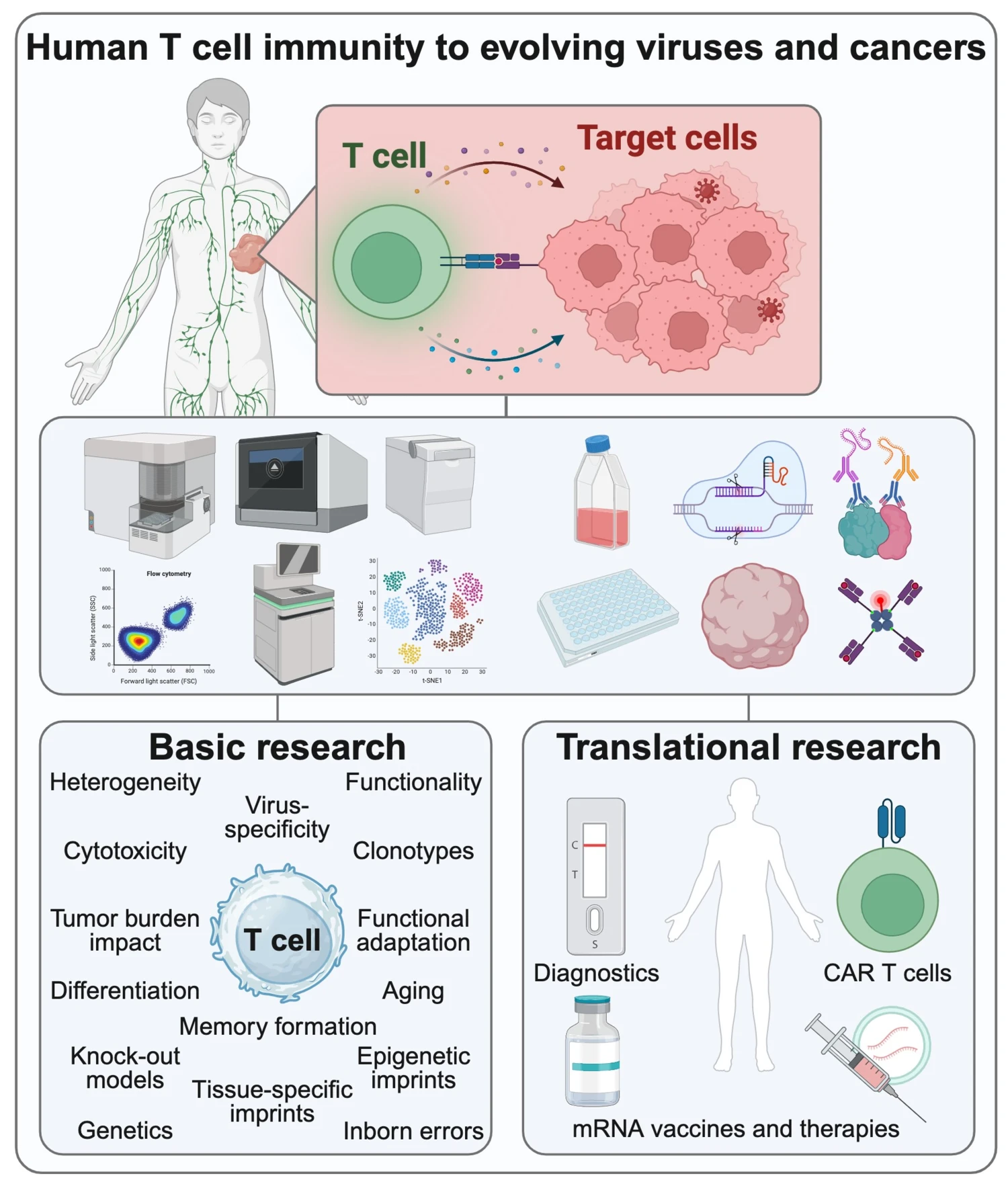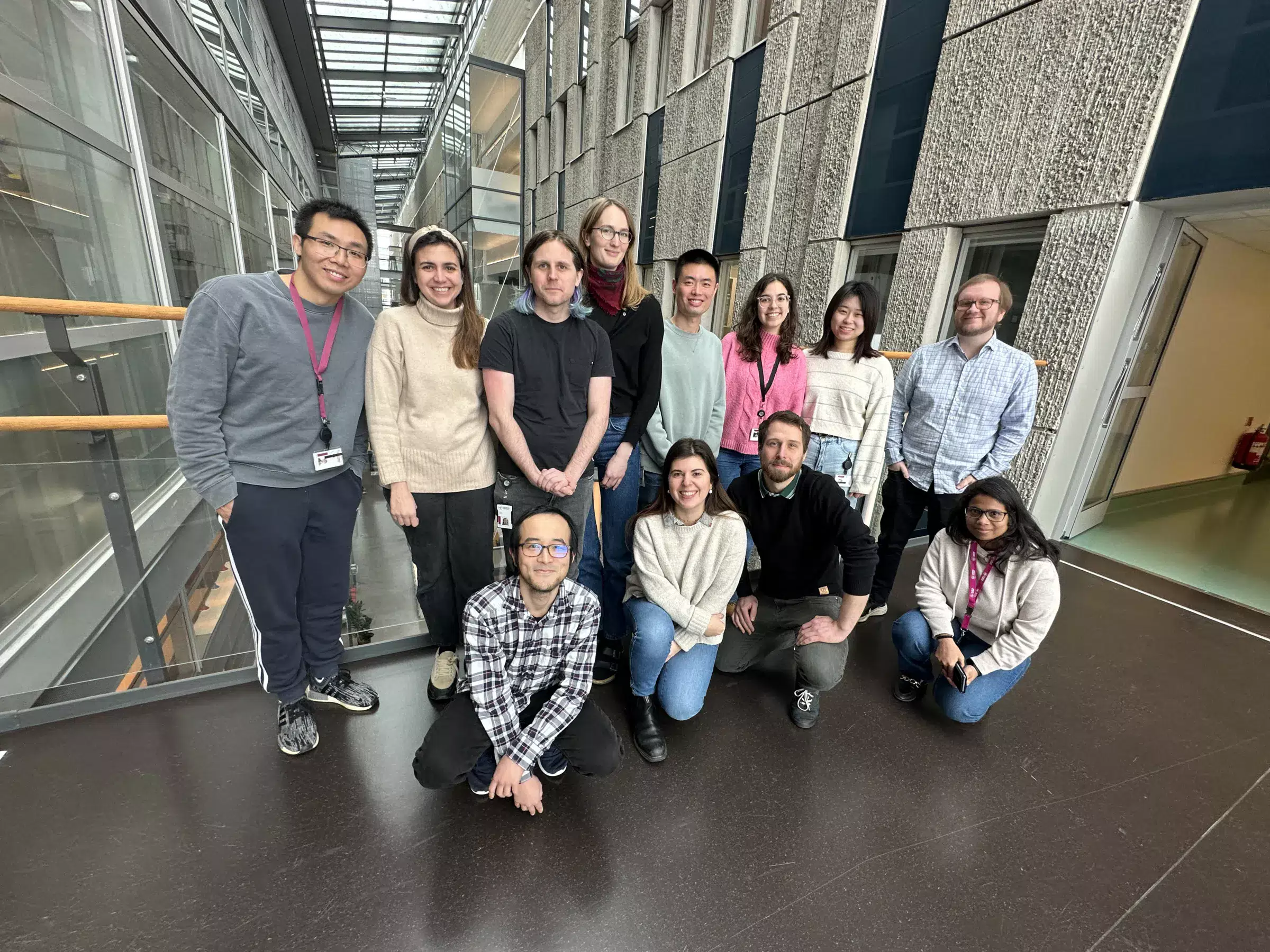
Our research
Our research group focuses on advancing our understanding of human cell-mediated immunity, especially how memory T cells recognize and eliminate rapidly evolving viral infections and cancers. These pathogens and malignant cells can mutate quickly, enabling them to evade immune defenses like antibodies. However, T cells are adept at cross-recognizing these changes, offering a robust response to such threats. We are particularly interested in the CD8+ T cell arm of immunity, which is essential for controlling most evolving viral infections and plays a pivotal role in cutting-edge cancer therapies. By studying how these T cells adapt to rapid changes in these diseases, we aim to develop more effective vaccines and immunotherapies.
Studies on human memory T Cells
Our research group is engaged in both basic and translational studies of human memory T cells.
In our basic research, we investigate the heterogeneity, viral specificity, and functionality of memory T cells across various tissues, utilizing both an established human organ donor cohort (IHOPE) and more specific human tissue cohorts. We furthermore conduct studies to understand how these cells control tumors and viral infections such as HIV, SARS-CoV-2, and influenza, among others, across tissues and blood. Our work includes developing organoid models to monitor and elucidate the activation and differentiation processes of memory T cells in combating viral infections and tumors. We also employ CRISPR-Cas9 knockout studies to investigate the mechanistic impacts of specific molecules on T cell functions. Additionally, our studies leverage unique cross-sectional, longitudinal, and vaccine cohorts to explore how age, genetics, comorbidities, and other factors influence circulating and resident memory antiviral T cell functions.
In our translational research, we are developing advanced diagnostic procedures to assess T cell specificity and function in precision medicine settings. Additionally, we are partnering in several vaccine trials to explore how mRNA vaccines induce functional T cell responses against evolving viruses and cancers in personalized settings. We also utilize cutting-edge technologies to develop mRNA-based therapies to generate next-generation CAR T cell therapies tailored to address the challenges posed by rapidly evolving viruses, cancers, and other conditions.
Technologies and methods
Our group employs a comprehensive suite of advanced technologies to study the functions of human memory T cells. We are equipped with multiparametric flow cytometers, including both spectral (45-parameter) and conventional (30-parameter) FACS instruments and sorters. This setup enables us to perform high-end single-cell analyses at the protein level. Additionally, our laboratory infrastructure boasts 10X controllers, PCR instruments, bioanalyzers, and other essential equipment, facilitating the conduct of single-cell RNA-seq, ATAC-seq, CITE-seq, TCR-seq, and tetramer-barcoding analysis in-house. We also develop and use organoid culture systems derived from various tissue samples to better mimic immune reactions in organotypic scenarios. Additionally, we have the necessary apparatuses, including Nucleofectors and other systems, for CRISPR-Cas9 knock-in/knock-out applications.
Our group has access to high-throughput sequencers (e.g., NovaSeq) and bioinformatic expertise, further augmenting our analytical capabilities. This array of technologies and methods equips us to conduct comprehensive investigations into the intricacies of T cell biology in both human health and disease.
Collaborations
Our research group is situated in the dynamic research environment of the Center for Infectious Medicine (CIM) within the Alfred Nobel Allé (ANA) Futura laboratories. We operate in close conjunction with other CIM research groups and collaborate with many clinicians at the Karolinska University Hospital to obtain valuable samples. Additionally, we collaborate with researchers at Karolinska Institutet and Science for Life Laboratories in Sweden, as well as with leading researchers in our field from universities around the globe.
Open positions
We are constantly looking for talented post docs with an ambition to explore new and unique aspects of human T cell immunology, tissue immunology, and related questions.
If interested, please contact the Group leader: marcus.buggert@ki.se

